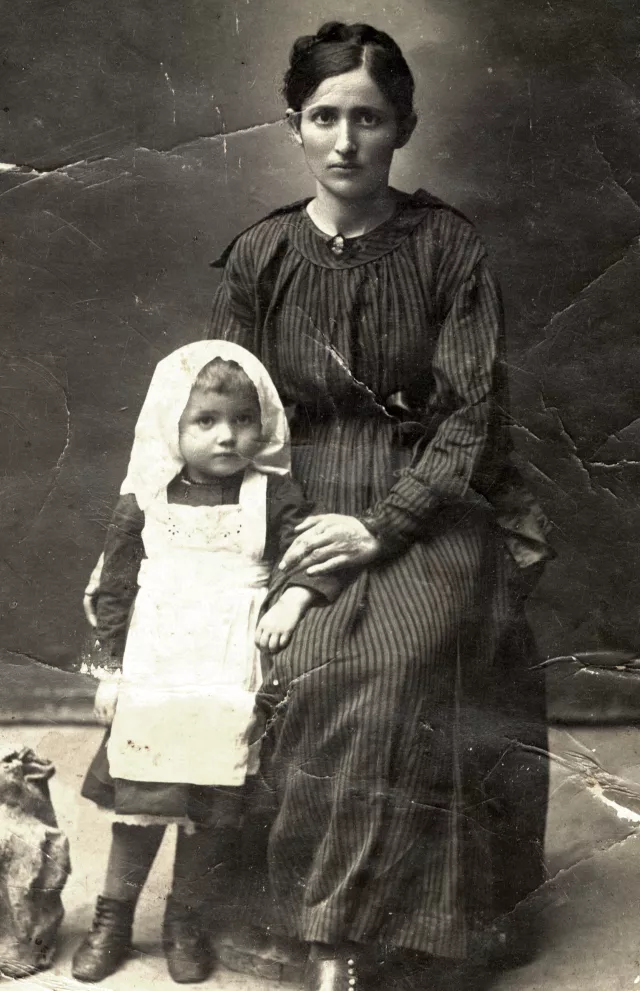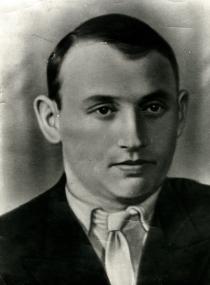Galina Barskaya and her aunt Olga Barskaya
That’s me with my aunt, Olga Barskaya, who raised me. The photo was taken in 1918 in Kremenchug.
In 1918, my father gave me to the family of his brother Grigory, because he could not raise all of us. I also think he began dating another woman. That’s what my sister told me. My brother and sister stayed with our father.
The name of my father’s brother, into whose family I was sent, was Grigory Barsky. He was very handsome – I wish I had a photo of him. During World War I he fought at the front, and then he joined the party of Bolsheviks. He fought for the Red Army in the Civil War, lost an arm there. He was very joyful and optimistic. I remember he brought me a lot of presents – fabric for dresses, toys and sweets. He loved me very much because he had no children of his own.
He also worked in the special Extraordinary Commission for fight against counter-revolution. I don’t know what happened then – there was some case concerning Orthodox priests who were to be shot but Uncle Grigory had pity on them and let them go… So, Uncle Grigory and a big group of his colleagues were shot instead. Only later a special message came from the capital of the Ukrainian Republic, which was Kharkov then, that they were innocent and should be released. But it was too late. Among those who were shot there were several Jewish communists, including my uncle.
He left a note and somehow managed to pass it to my aunt. In the note he wrote that they were innocent, that they were always fighting for the right cause and that they were condemned unjustly. I know that my aunt kept this note but it was too late. She tried not to talk about it, but I still don’t remember that anyone was punished for their shooting.
My aunt was Olga Samoilovna Barskaya; I don’t know her maiden name. After her husband died, my aunt found a job at the same butchery where my father was working. She also was working with preparing meat for sausages. For her, delicate and tiny, it was very hard. The workers stood on a cement floor in heavy boots because the floor was full of water for washing meat. To get to work she had to walk across the whole town because there was no transportation. She left early in the morning and came home when it was dark – almost night. I remember when she took off her boots after work she would always pour out water from them. Her life was very hard. But there was no way out – she had to provide for her family.













